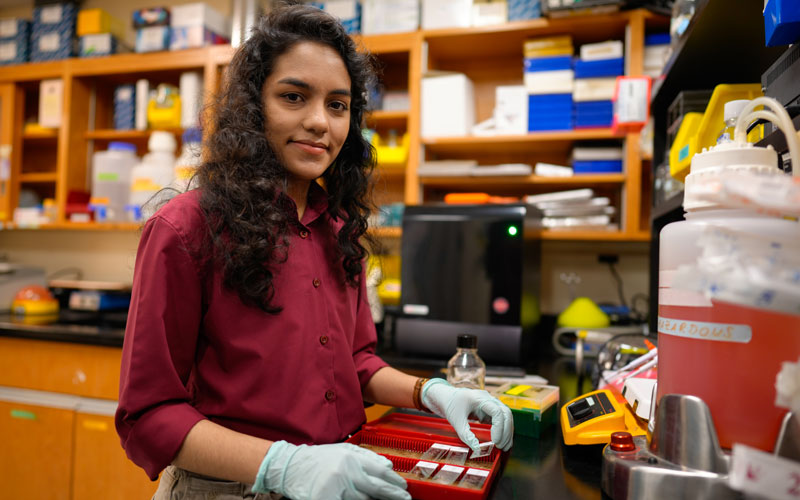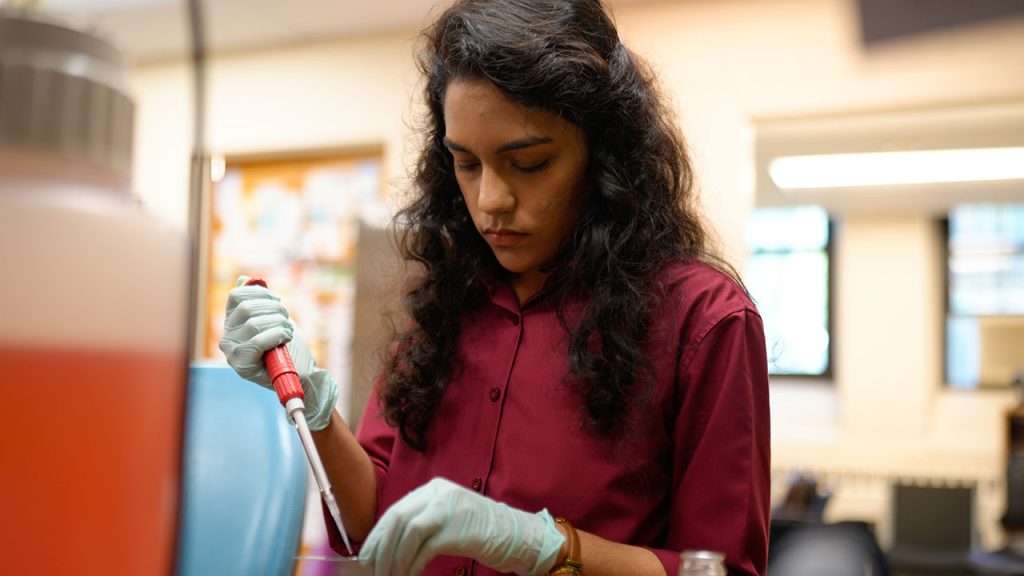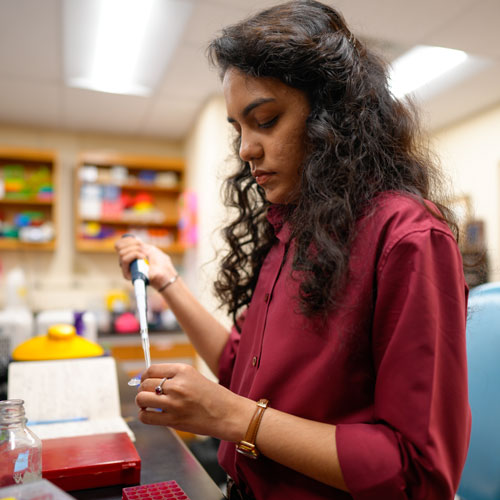Rebecca Tejiram has always been fascinated by science, particularly the human body and its interconnected systems. Through the coursework for her major in biological sciences—as well as hospital volunteer work she did in high school— she discovered her love for medicine.
A graduating senior and valedictorian at Fordham College at Rose Hill, Tejiram was accepted to three medical schools. She’s planning to attend the Icahn School of Medicine at Mount Sinai in Manhattan next year.
“Medicine is so much more than just the [coursework]—there’s a heart to medicine,” she said. “It involves bonds of compassion; you’re there for somebody, and not only just to be there to feel with them, but to do something about it.”
Ahead of graduation, Tejiram, who is on the pre-health track, shared some advice for students interested in medical school.
Explore unique research opportunities—when you’re ready.
Tejiram didn’t start working in a lab until her sophomore year, which she said allowed her to adjust to college and better understand the science behind the research.
Since then, she’s worked on two different research projects. She studied diseases such as age-related blindness in the vision lab of Silvia Finnemann, Ph.D., where she worked on a project that tests treatments for mice with vision defects.
She also worked with Rachel Annunziato, Ph.D., on a clinical research project at Elmhurst Hospital in Queens—her hometown. The project aimed to engage at-risk patients and reduce medicine avoidance.
“For some patients, I’ve been able to see them from the beginning to the end of the study, which has been really great,” she said. “I’m really excited to see the impact.”

Look for lessons that translate.
In both research projects, Tejiram said she was looking for lessons that “can be easily translated” for medical school.
“For example, I do live tissue imaging,” she said. “It’s taught me how to balance precision and also time efficiency because you have a short window of time to work with the tissue. I think that’s going to be really important going into the fast-paced environment of medicine.”
Through her work at Elmhurst Hospital, Tejiram said she’s gained strong patient skills.
“Being able to sit with them and talk with them and hear their stories—I think I’m going to need that … so they can trust me as their physician,” she said.
Make a plan for applying to med school.
Tejiram said that the application process lasted about a year, so planning things like coursework and when to take the Medical College Admission Test (MCAT) was essential. Fordham advisors helped her navigate the process.
“I started applying in junior year—I had to take the MCAT, and then I had to do the primary application,” she said, noting that schools also send a secondary application.
She spent last summer writing essays and submitting secondary applications before interview season started in the fall. She got her decisions starting in February.
Expand your studies beyond your major courses.
Tejiram minored in bioethics, an area she discovered after taking a philosophical ethics course through Fordham’s core curriculum.
“I realized how many ethical dilemmas come up in daily life, but especially in a field where you’re dealing with patients and human lives,” she said.
Find supportive mentors and ask them for guidance.
When she was deciding if she wanted to go straight into medical school or take a gap year, Tejiram said she relied heavily on the advice of her Fordham mentors.
“Those mentors, those support networks I found have been so instrumental throughout my whole journey, and I think it’s really important to remember that you don’t have to do it alone,” she said.
Remember, on the evening of May 18, New York’s Empire State Building will be illuminated in Fordham maroon for our graduates.


